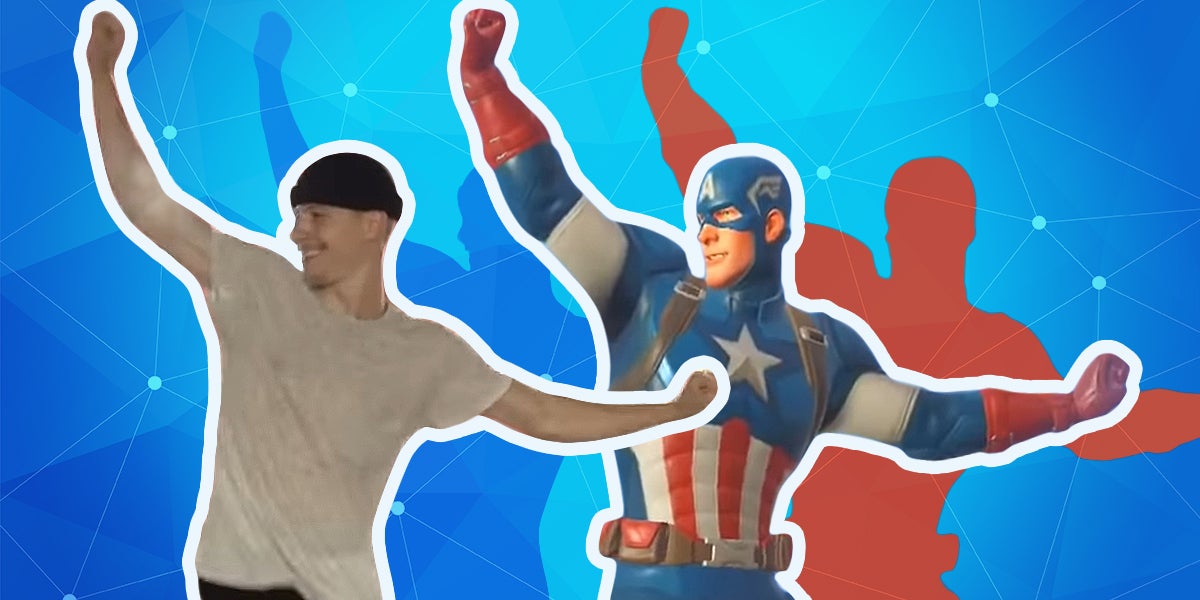
“How long has this been going on?” sings pop star Charlie Puth on “How Long” — a track that dancer Kyle Hanagami choreographed a viral dance routine to in a YouTube video racking up over 38 million views.
The question posed by Puth in the song is precisely the one many choreographers are asking themselves when it comes to media companies seeking to commercialize dances without giving creators any cut or credit — after Hanagami’s lawsuit against Epic Games over the use of his dance was revived by a U.S. court last week.
The lawsuit covers a dispute over an avatar emote in “Fortnite” that allegedly ripped off part of Hanagami’s popular routine for “How Long.” If you take a look at the video below, you’ll see the similarities are… pretty striking.
In 2022, a lower court dismissed Hanagami’s lawsuit after ruling that the limited “poses” and the short nature of the moves that were copied for Fortnite were not enough to amount to an infringement. But, that analysis has now changed, and Hanagami’s legal battle with Epic Games will continue forward.
“Choreography has become the oft-maligned red-headed stepchild of copyright,” writes attorney and copyright expert Aaron Moss, who was one of the first to break the news about the revived lawsuit.
The Perils of Remix Culture
Dance routines, more formally referred to as choreographic works under the U.S. Copyright Act, are eligible for copyright protection in the U.S. Such protections allow originators of viral dances to potentially capitalize on their work, but also create legal liability for content creators in the form of infringement claims given the remix culture so heavily ingrained in today’s digital environments.
Some dances simply aren’t eligible for copyright protection, such as a signature celebratory end zone move or social dances. Other more elaborate routines, however, can be protected and can be registered via video recordings, photographs, and written descriptions of the choreography.
As this developing area of copyright law takes shape in the digital space, both brands and creators will need to pay attention to the dances they use — you never know when thoughtlessly participating in a viral trend could end in costly litigation or settlement payments. Choreography clearances can and should be included in content release plans, in the same way they ensure proper licenses for music use, models or talent, or other assets.
Now may also be the right time for creators to audit previously released content and make sure to tag, credit, or collaborate with the originators of viral dances — especially if you’re profiting off the content. The potential for infringement liability remains during any time content is available, and even for a short period after it is taken down. And regardless of whether Hanagami is successful in his ongoing lawsuit, you never know when a dance will qualify for copyright protections and require a license or permission to use.
Appropriation or Inspiration?
In recent years, the formal requirements for registering the copyright to a dance have been challenged, in large part due to social justice concerns raised by Black creators and the appropriation of their work. Addison Rae’s now infamous appearance on Jimmy Fallon continues to serve as the leading example of the backlash that can come from failing to credit. Still, critical questions remain: Should creators get paid for their dances? If so, who should pay?
Choreographer JaQuel Knight, known for his work with artists from Beyoncé to Shakira to Justin Bieber, has long been advocating for more recognition of, and payment to, choreographers who contribute to the iconic performances that frequently become cultural moments.
“Copyrighting movement is about putting the power back in the artist’s hands,” Knight said in a 2020 interview with Billboard.
In 2021, Knight founded a publishing company to manage the rights and licensing for his own catalog of dances and those of other choreographers, including support with the complicated process of registering the copyright (a requirement to enforce it). Knight has publicly mentioned working with attorney David Hecht, who also represents Hanagami in the lawsuit against Epic Games.
Companies that aim to commercialize popular dances — whether as part of a marketing campaign or as part of a larger production such as a video game or film — should do some research to identify the origins of viral trends, and then aim to compensate the original creators adequately. Creators that have amassed large followings should similarly aim to give proper credit if they, or their team, are building upon another, lesser-known creator’s work.
As Washington Post reporter Taylor Lorenz explained in 2020 in a story about the story of Jalaiah Harmon, the 14-year-old creator behind the “Renegade” viral dance who did not receive credit for originating the trend during its rise to popularity, “To be robbed of credit on TikTok is to be robbed of real opportunities.”
Hypothetically, social media platforms could develop computer vision AI technology like that of automatic content recognition technologies, such as YouTube’s Content ID, that would analyze videos and detect choreographic works. Such capabilities are available in tools like Zoom that can recognize hand gestures to trigger reactions.
Content is already being analyzed in numerous ways, so adding another analysis layer (automated or otherwise) likely wouldn’t result in anything beyond what we’re seeing with music or video copyright claims. (Of course, the potential for false flags would probably add to the already complex nuances of copyright management on social media).
As the issue of ownership makes its way through the court system, players across the creator economy will unfortunately remain in limbo as to whether there is truly any legal risk for participating in or building upon viral trends (think: meme licensing). But, the risks that come from ignoring social norms or best practices for tagging and crediting original content remain entirely real.
So when in doubt, ask your fellow creators for permission.
What do you think of Hanagami’s lawsuit against Epic Games? Email tips@passionfru.it to share your story.




